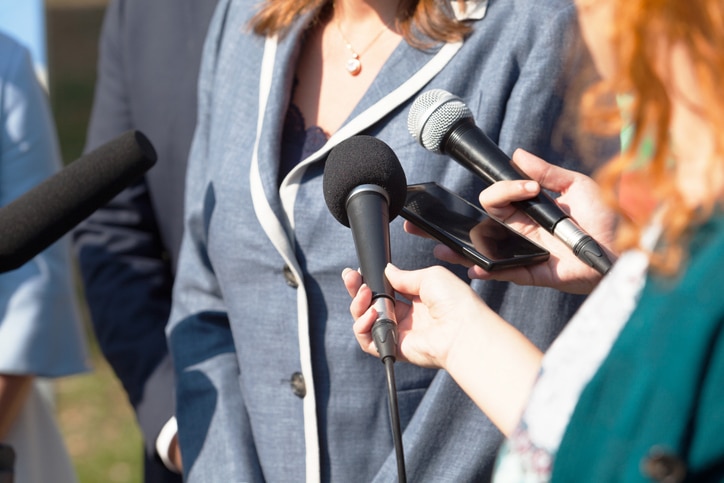While women are just as willing to be interviewed by media as men, they are increasingly concerned about copping sexist abuse and online trolling when they do, new research from Curtin University and The Australian National University (ANU) shows.
Surveying more than 200 experts and spokespeople, the study is the first of its kind in Australia to examine people’s motivations and barriers to engaging with media.
Led by Associate Professor Kathryn Shine from Curtin University with colleagues from the ANU Global Institute for Women’s Leadership, the study found a very high proportion of participants were willing to give news interviews.
“A really important finding was that women were just as willing as men to agree to an interview request,” Associate Professor Shine said.
“We know news coverage is dominated by the voices of men. Previous research shows about 70 per cent of people seen, heard or quoted in the news are men. Some argue this is because women are less willing to do media interviews than men.
“Our study debunks that argument. Clearly, we need to do more to make sure women are given equal opportunity and support to engage with news media.”
More than 80 per cent of participants also reported that their overall experience of giving news interviews had been positive. Only six per cent reported a negative overall experience.
Survey participants also gave valuable insights into what made for a good media interview experience. This included no ‘gotcha’ moments, mutual respect, and genuine interest from the journalist, among a range of other recommendations.
However, the survey findings also highlighted significant barriers to people deciding to give media interviews.
The study found more than one-third of people surveyed (38 per cent) had experienced online trolling in response to appearing in the news. Men received more trolling than women (42 per cent compared to 36 per cent) but women were more likely to receive sexist abuse.
Women were also more likely than men to refuse an interview request based on lack of specific expertise, concerns about their appearance and concerns about online harassment.
“Yes, it can be scary to give a media interview and there are some risks associated with speaking out publicly, but it seems that most people want to do it. They appreciate the chance to share their experience or expertise,” Associate Professor Shine said.
“Women and people from other under-represented groups should be routinely given this opportunity. They have important and valuable perspectives to contribute.”
Director of the ANU Global Institute for Women’s Leadership Professor Michelle Ryan said the report provided some clear lessons for media professionals and media consumers.
“If we are to be truly reflective of Australian society, we must make sure that women feel just as empowered and able to engage with our media and journalists,” Professor Ryan said.
Study co-author Dr Alexandra Fisher, also from the ANU Global Institute for Women’s Leadership, said: “It’s imperative we make media more open to women. If we don’t, there are major consequences when it comes to the diversity of views, voices and experiences across both our media landscape and in public commentary.
“And that’s a major concern and loss for our society and democracy.”
The research is published on the ANU Global Institute for Women’s Leadership website.



